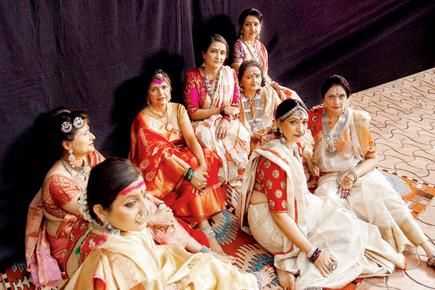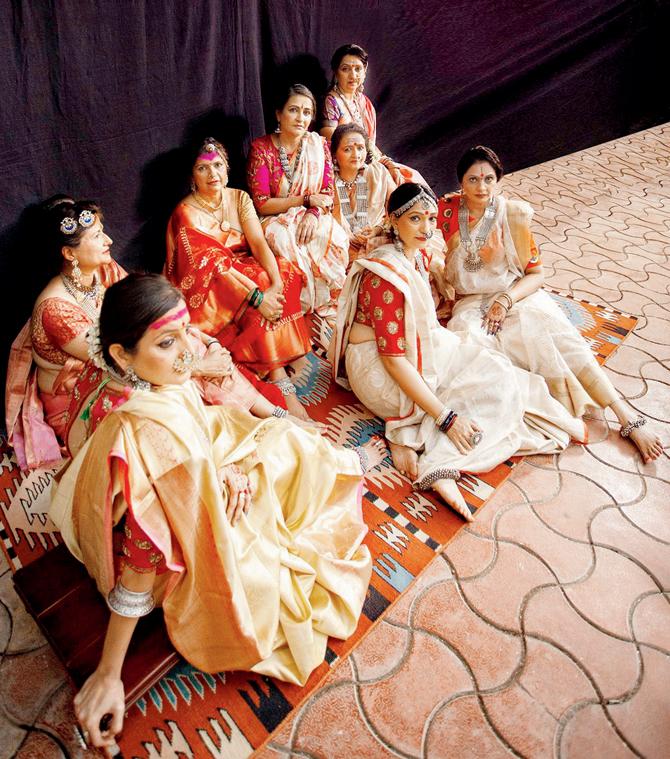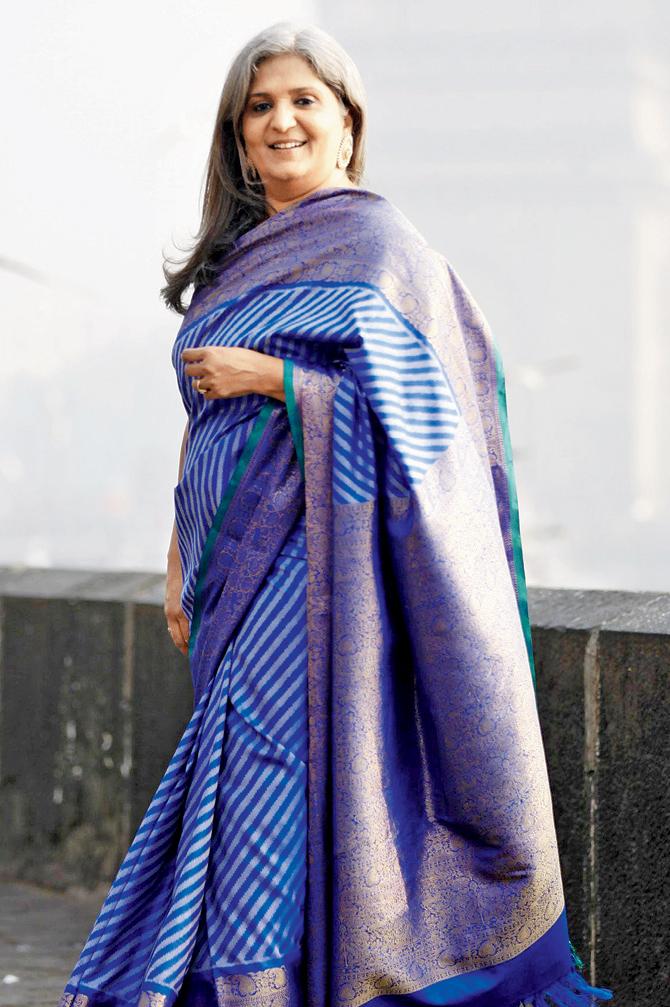At an apparent level, it seems improbable that three people from diverse backgrounds should become not just friends but also partners, in setting up a specialised retail space

Handwoven saris at Vaya
At an apparent level, it seems improbable that three people from diverse backgrounds should become not just friends but also partners, in setting up a specialised retail space. Despite being in different locations, with dissimilar family backgrounds and disparate educational fields, destiny brought them together to set up the Vaya Weaving Heritage stores in Mumbai. These stores retail hand-woven garments picked from India’s vast weaving repertoire.
ADVERTISEMENT

Handwoven saris at Vaya. Pics Courtesy/Vinit Bhatt
Vaya Weaving Heritage came into existence with the understanding among these soon-to-be-introduced friends that only hand-woven textiles sans bling/machine-made/ power-loom manufactured will be showcased in this space for textile aficionados. To many worldly-wise non-believers, it seemed like whimsical, ineffective agenda that lacked commercial sense. “Give the customer what she wants,” they said, “keep a small space for hand-woven, if you must but focus on what sells,” they suggested. But these friends — Mira Sagar, Bappaditya Biswas and Gaurang Shah — were united in their passion for the handloom, and took the tough path.

Mira Sagar of Vaya Weaving Heritage
Mira hails from a Gujarati business family and was born in Yemen to a chic mother and wealthy father. Business genes prodded early, and fresh out of college, she sold saris at exhibitions thus earning enviable profits. Soon, she got involved in the workings of a weavers’-based NGO and took part in the creative and commercial joys of making weaving a viable option for Maheshwar’s local artists. She encouraged weavers to attempt trendy, saleable pieces in bright shades, with big borders and salwar-kameez yardages. She empowered them by a swift turnaround of their work with sales. As a mother of two growing children, her journey was paved with hard work and challenges that made her effective and emphatic.
Around this time, Bappaditya Biswas had also found his calling as a textile connoisseur. Growing up in Siliguri, he was fascinated by the sari from an early age, and enjoyed painting on it and gifting it to the charmed women relatives, much to the chagrin of his father who hoped that his only son would take on his tea estate. After a half-hearted attempt at graduating in Commerce, Bappa left his home and chose the harsh life of New Delhi, to dabble in textiles. When things didn’t work out, Bappa headed to Kolkata, and along with pursuing education in fashion design, worked in a block printing workshop, as a worker.
A chance meeting with the Dean of Fabric Workshop and Museum, Philadelphia, led to a scholarship to pursue further studies in textiles. Refusing a chance to study further in USA, he returned to Kolkata and moved to the unknown village of Phulia with his wife where they set up home. There, while living among weavers, as their neighbour and mentor, he became appreciative of them and their tough work environments. Soon, saris from these weavers were sold under the name, Bailou.
A matching centre called Indian Emporium in Hyderabad’s Begumpet area is much sought after by discerning women shoppers across economic brackets as their go-to place for blouses, dupattas etc. Older patrons recall a young boy who would potter around, and was alert enough to man the counter, count cash or measure out the yardage under the eye of his father. Getting a sense of textiles, he, thus, developed a deep bond and with his father and brother, shouldered the responsibility of the store. Gaurang expanded the store to cater to the globetrotting, quintessential Indian woman who gently held on to her roots traditions. He worked with Hyderabad’s weavers and bridged the gap between customer whims and weaver artistry.
At this juncture of their lives, the path of these enthusiasts of handwoven textile crossed. They met at an exhibition where, in a synergic confluence, Bappaditya encouraged Mira to forge her independent path, while Mira encouraged Gaurang to think global; in turn, Gaurang added a dash of wit, flair and a reverence for margins in their endeavour.
Today, their common vision drives Vaya Weaving Heritage stores in Mumbai to make available to an insightful connoisseur, a wide variety of garments, fresh off the looms from almost across India, and at all conceivable price points. It stands as a proud reminder that there will always be a requirement for a product to suit the exquisite flavour of genteel customers.
 Subscribe today by clicking the link and stay updated with the latest news!" Click here!
Subscribe today by clicking the link and stay updated with the latest news!" Click here!






